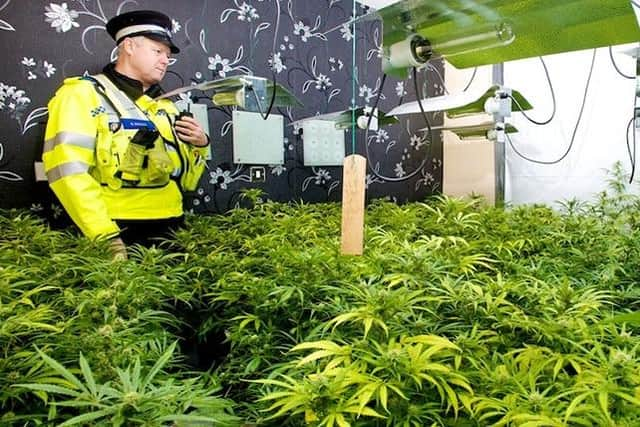Scottish prosecutors angered by US criticism of record on child slavery
and live on Freeview channel 276
The Trafficking in Persons report, which records every countries' work on human trafficking prevention, noted a rise in “wrongful prosecutions” north of the border.
However, its authors were unaware of the legal system – in Scotland and Northern Ireland only – whereby prosecutors play a leading role in protecting young people who are suspected of being trafficked into the country largely to run cannabis farms in domestic properties.
Advertisement
Hide AdAdvertisement
Hide AdCurrent English legislation does not allow the support given in Scotland and Northern Ireland.
Despite this, the authors of the report wrote: "Observers in Scotland noted an increase in the proportion of criminally exploited children who were charged with crimes and underscored that more trafficking victims faced criminal justice processes than traffickers."
Scotland has been a net exporter of cannabis for more than 10 years and South-east Asian gangs, including Triads, have raked in hundreds of millions of pounds from the trade.
The same ‘Snakehead’ gangs are responsible for human trafficking on a vast scale and mainly use teenagers to grow the cannabis plants and harvest the flowering buds.
Advertisement
Hide AdAdvertisement
Hide AdIn England and Wales people who are suspected trafficking victims also face prosecution, but in Scotland it is the first step towards safety, protection and their eventual freedom.


Under Scots law, a report has to be sent to procurators fiscal, prompting a series of processes which are designed for the benefit of the accused.
One senior QC with experience at the Crown Office and Procurator Fiscal Service (COPFS) said the report to the State Department was “just wrong” and “seriously under-informed”.
"It is almost never the case that they are a confirmed victim of trafficking when they are charged,” she said. “But by reporting them we can then engage with the National Referral Mechanism (NRM) where the Home Office works alongside police and other bodies to prove they have been trafficked. Some of these victim do not actually believe that they are victims when they plainly are.
Advertisement
Hide AdAdvertisement
Hide Ad"By charging them we can remand them to a safe place where their every need will be met. Most importantly, they will be safe from the people who brought them here. These are ruthless criminal organisations and their threat is very real.”
She added: “We always await the NRM’s determination before making a final decision regarding prosecution of the person.
“Sometimes prosecutions have to be commenced for administrative purposes but we do not ever seek to criminalise being a victim of human trafficking. The situation is quite the opposite.”
The Scottish system is approved by the Council of Europ Group of Experts on Action Against Traffcking in Human Beings.
Advertisement
Hide AdAdvertisement
Hide AdBetween January 2019 and February 2022 the Scottish Guardianship Service referred 147 cases to the NRM. UK-wide there were almost 1,500.
A COPFS spokesperson said: “Scotland’s prosecutors are committed to protecting the human rights of the victims of trafficking.
“The published Lord Advocate’s instructions to prosecutors set a strong presumption against prosecution of child victims who have committed a criminal offence as a consequence of being a victim of trafficking or exploitation.
“Prosecutors can consider information from any source which suggests that an accused person may be a victim of trafficking.”